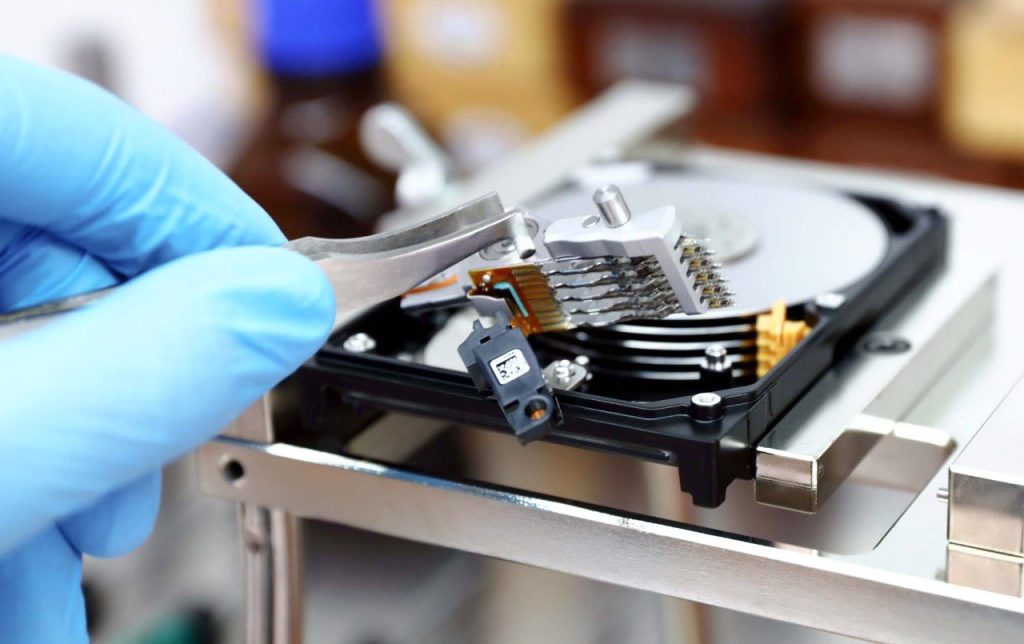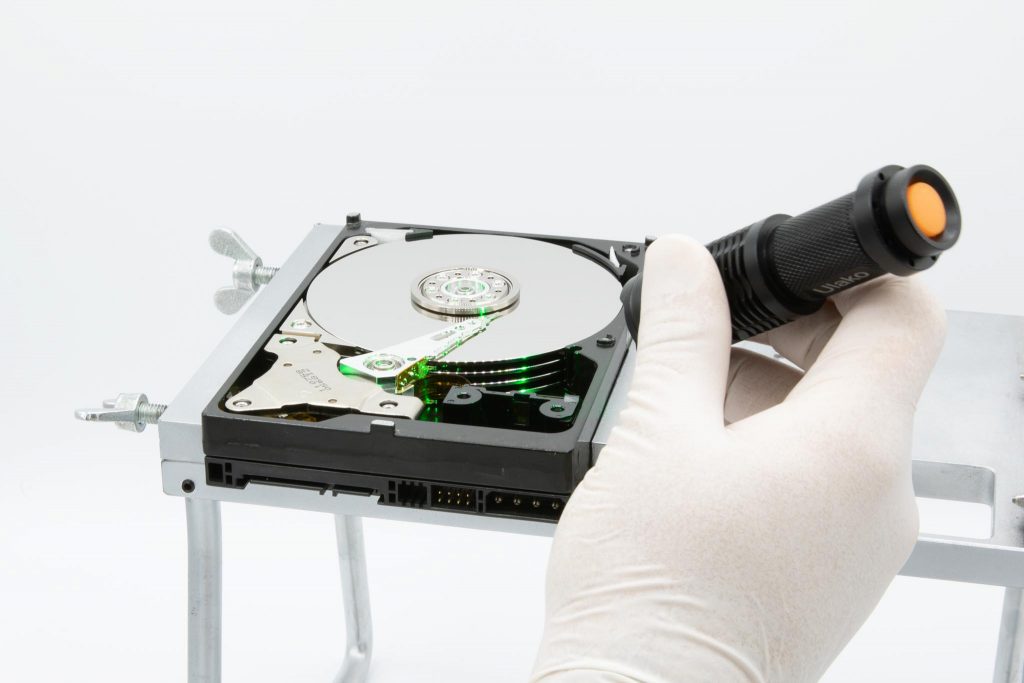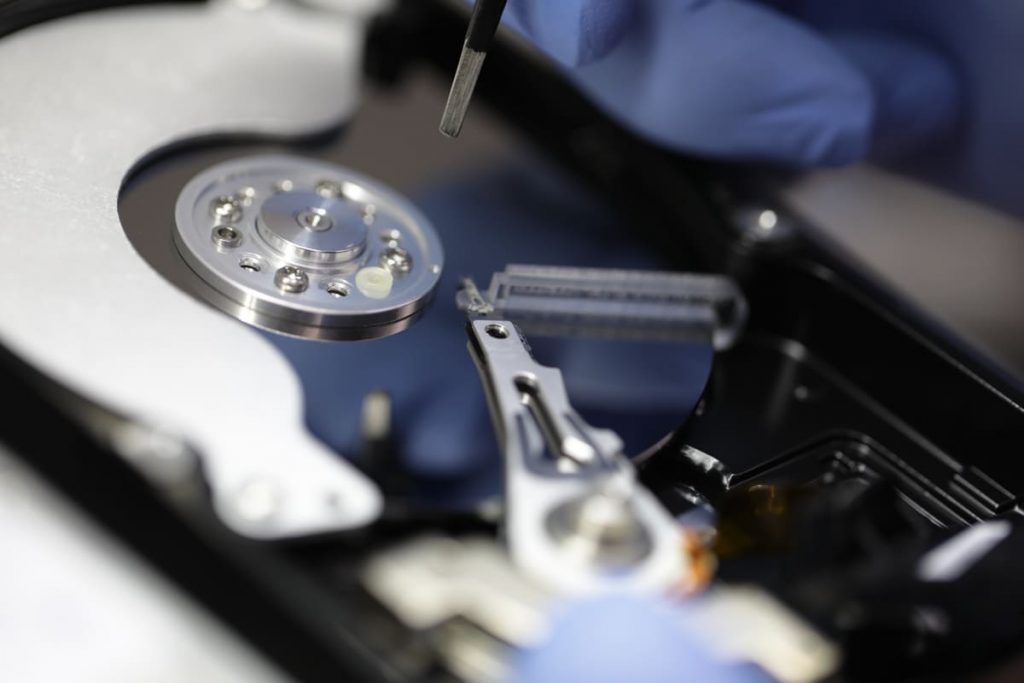Whether data can be recovered from a non-functional hard drive can be quite distressing for those who have encountered such a failure. A hard drive’s lifespan depends on various factors, including how much it is used and how well it is maintained.
People rely on internal and external hard drives for advantages such as high capacity, fast speed, and durability. The structure and technology used in the hard drives are complicated, making these devices more reliable. However, collapse is always possible and can happen with any data storage device.
Once a hard drive fails, bringing it to its original condition isn’t easy. The dead hard drive is a typical consequence of the collapse, irrespective of the brand and model of the device. This article offers insight into dead hard drive situations and what to do when facing them.
What is Dead Hard Drive?
A dead hard drive is a storage device that has ceased functioning and is no longer accessible by the computer, often leading to a potentially catastrophic data loss. A hard drive is considered dead when it does not respond correctly, gets inoperable, and does not give any noise when you try to boot the operating system from it. When noticing any of these symptoms, the worst scenario is that all the data stored on it becomes inaccessible.
Physical Damage
Exposure to shock, water, and heat can lead to severe hard drive failure. Moisture and heat physically damage electronic parts of the drive. Also, dropping the laptop or dropping anything heavy on the desktop by mistake can damage its internal components, resulting in a dead hard drive.
Mechanical Damage
The mechanical parts of hard drives are susceptible to wear and tear. With regular use, the internal elements of the device can become defective. If your hard drive's read/write heads become weak or completely crash over time, it will no longer process or store data correctly.
Logical Damage
Logical damage to the hard drive is caused due to software-related errors. These errors result from many factors, such as corrupted files, virus attacks, file directory damage, and human errors. If a logical failure occurs, your hard drive may not boot its OS, and data will become unreadable.
In the case of a dead hard drive, the primary purpose is to recover the data by any means. However, any attempt to restore lost data without knowing the failure complications can cost you thousands of files. Therefore, it is essential to understand what to do not to cause more damage to your files and increase your chances for successful recovery.
"*" indicates required fields
What to Do When Facing Dead Hard Drive
Hard drive collapse is a complicated and stressful event, which often leads to critical consequences. Complete data loss and file inaccessibility are the most severe issues caused by failure.
Hence, people try to prevent these complications when a malfunction occurs and solve the dead hard drive problem themselves. However, this approach does not suit the situation when the device stores hundreds of gigabytes of valuable data.
So, there are several steps you should go through and actions you should avoid doing when dealing with a “dead” hard drive.

- When facing any signs of hard drive failure, the first thing to do is power it down. You can prevent the device from being completely inaccessible by noticing the collapse at early stages. Strange noises, slow performance, and frequent error messages are common indications of failure, and if you see one of them, turning the device off will be a good step forward for your essential files.
- If you catch any malfunction symptoms and notice missing or deleted files, do not try to use any data recovery software on your drive. There are many unverified recovery programs on the Internet, but they do not guarantee restoration of the files. In addition, downloading and installing these tools on the device can insert viruses and worsen the situation.
- If the hard drive does not show any signs of operating, it means that it is “dead,” and it is important to leave things the way they are. Removing and repairing the hard drive will not fix the device, and it will start running again, at least not for a long time, and not correctly. But by trying to fix the drive, you can damage surface platters or motherboards, which contain your essential files and will make them unrecoverable.
So, entrust this process to professionals instead of restoring your data yourself. Specialists with years of experience in data recovery can deal with any complication and difficult situation, and dead hard drives are one of them. However, you should understand that various conditions require different recovery strategies based on the level of damage.
Chances of Dead Hard Drive Recovery
Chances of Dead Hard Drive Recovery largely depend on the nature of the failure. If the drive has suffered a mechanical failure, where physical components have been damaged, recovery may be more challenging and often requires professional data recovery services.

Hard drive data recovery suggests restoring inaccessible files due to mechanical, physical, or logical issues. On the other hand, dead hard drive recovery represents restoration when the device becomes unusable.
Recovering data from the dead device using drive recovery software is impossible. Of course, a solution to the problem will be found with professional data recovery services, considering the files remain unaffected. So, there is a high chance of successful data recovery unless file corruption occurs.
PITS Global Data Recovery Services engineers have thousands of successful cases on their accounts. We faced various data loss scenarios and handled them with the highest success rates. To get assistance from our professionals, contact us by filling out our form or calling our customer service line, and our customer service will be ready to help you restore lost files from the dead hard drive.
Frequently Asked Questions
What causes a hard drive to become "dead" or inaccessible?
A hard drive can become inaccessible due to various reasons, including physical damage, logical errors, firmware issues, electrical problems, or even human error. These issues can render your hard drive unresponsive and lead to data loss.
Is it possible to recover data from a dead hard drive?
Yes, it is often possible to recover data from a dead hard drive. PITS Global Data Recovery Services specializes in data recovery from a wide range of storage media, including dead hard drives. Our experts employ advanced techniques and state-of-the-art equipment to retrieve data in most cases, even from severely damaged drives.
What should I do if my hard drive becomes unresponsive or "dead"?
If you suspect your hard drive is failing or has become inaccessible, it’s crucial to stop using it immediately to prevent further damage. Do not attempt DIY data recovery methods as they can worsen the situation. Contact PITS Global Data Recovery Services for professional assistance.
How long does the data recovery process take?
The time required for data recovery varies depending on the extent of damage, the capacity of the drive, and the specific recovery techniques needed. PITS Global Data Recovery Services aims to provide prompt and efficient service, with turnaround times typically ranging from a few days to a few weeks.
Are my recovered files kept confidential?
We prioritize data privacy and confidentiality at PITS Global Data Recovery Services. Rest assured, your recovered data is kept private and secure through stringent data protection protocols.
